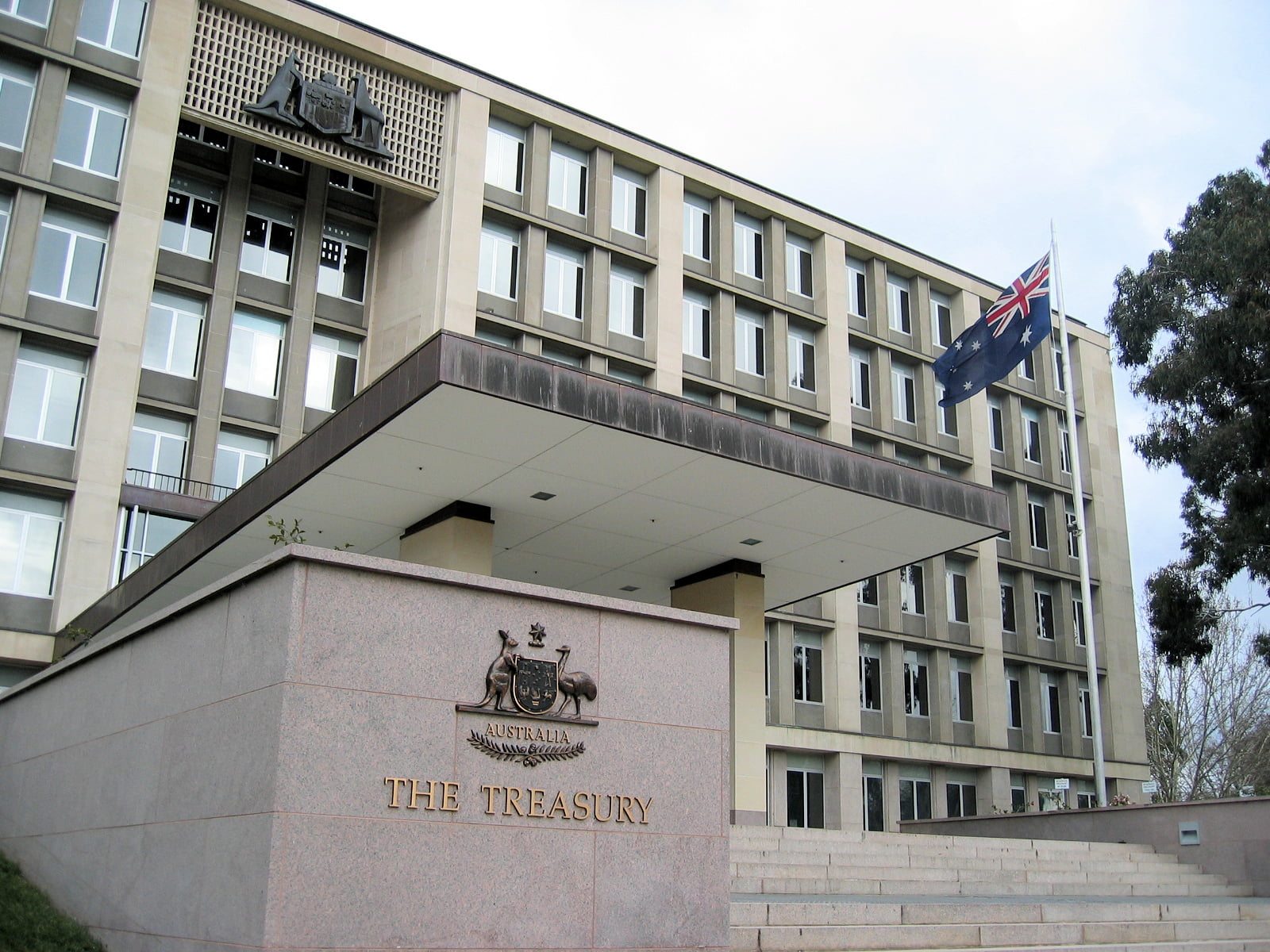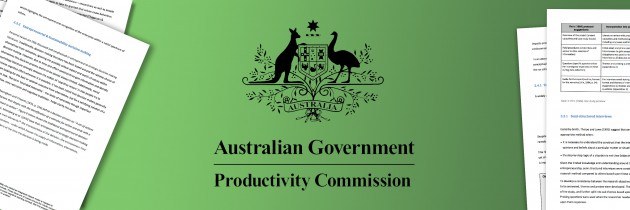- Jul 2, 2018
- 2,793
 |
Headquarters |
 |
Treasury Building, Parkes, Australian Capital Territory |
Ministers |
| Office: | Officeholder: | Image: |
|---|---|---|
| Treasurer | The Honourable Wayne Swan, MP | |
| Assistant Treasurer Minister for Financial Services | The Honourable Anthony Byrne, MP | |
| Minister for Small Business and Consumer Affairs | The Honourable Joel Fitzgibbon, MP | |
| Parliamentary Secretary to the Treasurer | Senator Kerry O'Brien |
...
...
...
...
...
...
...
...
 |
Overview |
| The Productivity Commission is the Australian Government's principal review and advisory body on microeconomic policy, regulation and a range of other social and environmental issues. The Productivity Commission was created as an independent authority by the Productivity Commission Act 1998, an Act of the Australian Parliament. Productivity Commission reports often form the basis of government policy. However, the Commission does not administer government programs or exercise executive power and governments are not required to act on its recommendations; although in practice, many recommendations are accepted. The Commission operates within the Treasury portfolio and its core function involves responding to references from the Treasurer, which can request a commissioned study or a public inquiry. References to the Commission stipulate the length and terms of the project and may cover any sector of the Australian economy; address a particular industry or cut across industry boundaries; and involve wider social or environmental issues. Most projects are specified for nine or twelve-month duration, although some may be six or fifteen months. Both studies and inquiries accept submissions from members of the public, although inquiries are additionally required (under the Act) to undertake formal public consultations. All reports are publicly released. In addition, the Commission acts as the secretariat to the intergovernmental Review of Government Service Provision, and produces annually the Report on Government Services, as well as regular reports that contribute to a better understanding of the effectiveness of government services provided to Aboriginal and Torres Strait Islander peoples. The Commission can undertake Commission-initiated research, and operates as the Australian Government's competitive neutrality complaints mechanism. |
 |
Overview |
| The Commonwealth Grants Commission is an Australian independent statutory body that advises the Australian Government on financial assistance to the states and territories of Australia under section 96 of the Australian Constitution. The commission operates under the Commonwealth Grants Commission Act 1973, and is responsible for measuring the relative fiscal capacity of each state and territory. The Commission recommends how the revenues raised from the goods and services tax (GST) should be distributed to each state and territory to achieve horizontal fiscal equalisation, a central feature of the Australian federation. |
Distribution of Funds 2004-05 |
| State/Territory: | Amount: | Population Share: | Share of GST: |
|---|---|---|---|
| New South Wales | $0 | 31.2% | 0% |
| Victoria | $0 | 25.7% | 0% |
| Queensland | $0 | 20.5% | 0% |
| Western Australia | $0 | 10.8% | 0% |
| South Australia | $0 | 6.9% | 0% |
| Tasmania | $0 | 2.1% | 0% |
| Australian Capital Territory | $0 | 1.8% | 0% |
| Northern Territory | $0 | 0.9% | 0% |
 |
Overview |
| The Australian Office of Financial Management (AOFM) is a part of the Department of the Treasury. It manages the Australian Government's debt portfolio. Its reports on debt management directed at ensuring that the Commonwealth debt portfolio is managed at least cost, subject to the Government's policies and risk references. |
| Debt: | Amount: | Interest Payable (per annum): | Value of Securities Issued: |
|---|---|---|---|
| Debt to World Bank: | $0 | 0% | |
| Debt to Foreign Governments/Central Banks: | $0 | 0% | |
| Debt to Private Companies: | $0 | 0% |
Australian Government Securities |
Australian Government Securities (AGS) are issued by the Commonwealth of Australia through the AOFM. The AOFM issues three types of securities:
Treasury Bonds are medium to long-term debt securities that carry an annual rate of interest fixed over the life of the security, payable semi-annually. Treasury Indexed Bonds are medium to long-term securities for which the capital value of the security is adjusted for movements in the Consumer Price Index (CPI). Interest is paid quarterly, at a fixed rate, on the adjusted capital value. At maturity, investors receive the adjusted capital value of the security – the value adjusted for movement in the CPI over the life of the bond. Treasury Notes are a short-term discount security redeemable at face value on maturity. Terms are less than twelve months. Treasury Notes are issued to assist with the Australian government’s short-term funding requirements. |
Last edited:


